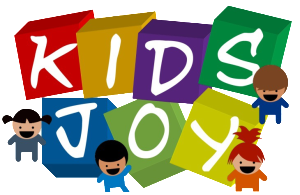This is a million dollar question and I wish it had a simple answer. For the 0.2 percent of you parents who have a pre-schooler who naturally loves to clean their room, please thank God for his kindness to you! For the rest of us 98.98 percent who have normal messy, ‘hate to clean up their room’ kids, hopefully this blog post will give you some ideas to help you along this journey!
1. Don’t expect perfection
Children are children and getting their hands dirty (and invariably the room around them!) is part of their development to explore and create. So don’t expect them to every reach your high standard of cleanliness. One of my favourite signs I’ve come across is this: “Please excuse the mess… my children are making memories!”
2. But don’t expect their room to be a perpetual tornado stuck area too!
Point 1 having being said, and the ground work laid, don’t give up on cleanliness and let them live in a mess, or even worse, allow them to make a mess and you clean up after them. Teaching them to organize their things and tidy up is a very important part of training them to be responsible. It sets the groundwork for an organized mind and thinking, even later on in life. And of course their spouse and family will thank you years later!
3. Its never too early to start.
I started training my kids to put back their toys before they even turned 1! My policy was, if you can take it out, then you can put it back. Preschoolers clean up all the time in school. Its part of their school routine and that’s what expected of them. So whatever their age, they can do it at home too.
4. One toy rule
I found the ‘one toy rule’ quite effective. ‘Play with one toy, and when you are done, put it back, and only then take out the next toy.’ There are always exceptions to this rule, because sometimes they may want to play with two toys together (eg. dolls and tea set). But as soon as they are done, they must put it back. Mess has this amazing ability to pile up over days and weeks, and that’s the hardest mess to clean.
5. Down size
If you’re someone who loves to buy toys for your kids, you’ll be surprised to know that 90% of the time your children only play with 10% of their toys or even less. Go through their toys and give away things that they aren’t playing with. Encourage them to get involved in the process and help them think of someone less fortunate than them to give it away to. Fewer things are MUCH easier to keep tidy!
6. Organize
Make sure that everything has a place. Label everything (you can even print pictures of the type of item and stick it on the drawer or box). This will help your child to easily put back items in their correct place.
7. Break down tasks
I’ve found this very effective in helping pre-schoolers clean their room. Instead of just sending them to their room with the instruction, “Go clean your room”, give them clear instructions of what they have to do. Eg: “Put away the dolls”, “Pick up all the papers and put it in the dustbin.”, “Put the crayons into the box.”
8. Use incentives
If your pre-schooler is not used to cleaning and throws a tantrum every time you ask them to clean, try using incentives. I don’t believe in giving monetary rewards or sugarly treats as rewards to get them to clean. Cleaning up after making a mess is something that should be normal for them. But to help them along, I would suggest using incentives like, “Clean your room quickly and then we can all play a game together!”, or “If you clean your room in 10 minutes, then I’ll read you three stories instead of two, before bed”.
A clean environment drastically brings down stress levels. So hope these few points give you some ideas on how to help your children learn this skill. In Part 2 of this blog, I’ll give you 5 steps of how to clean any messy room in just 10 minutes. Stay tuned!


Trackbacks/Pingbacks